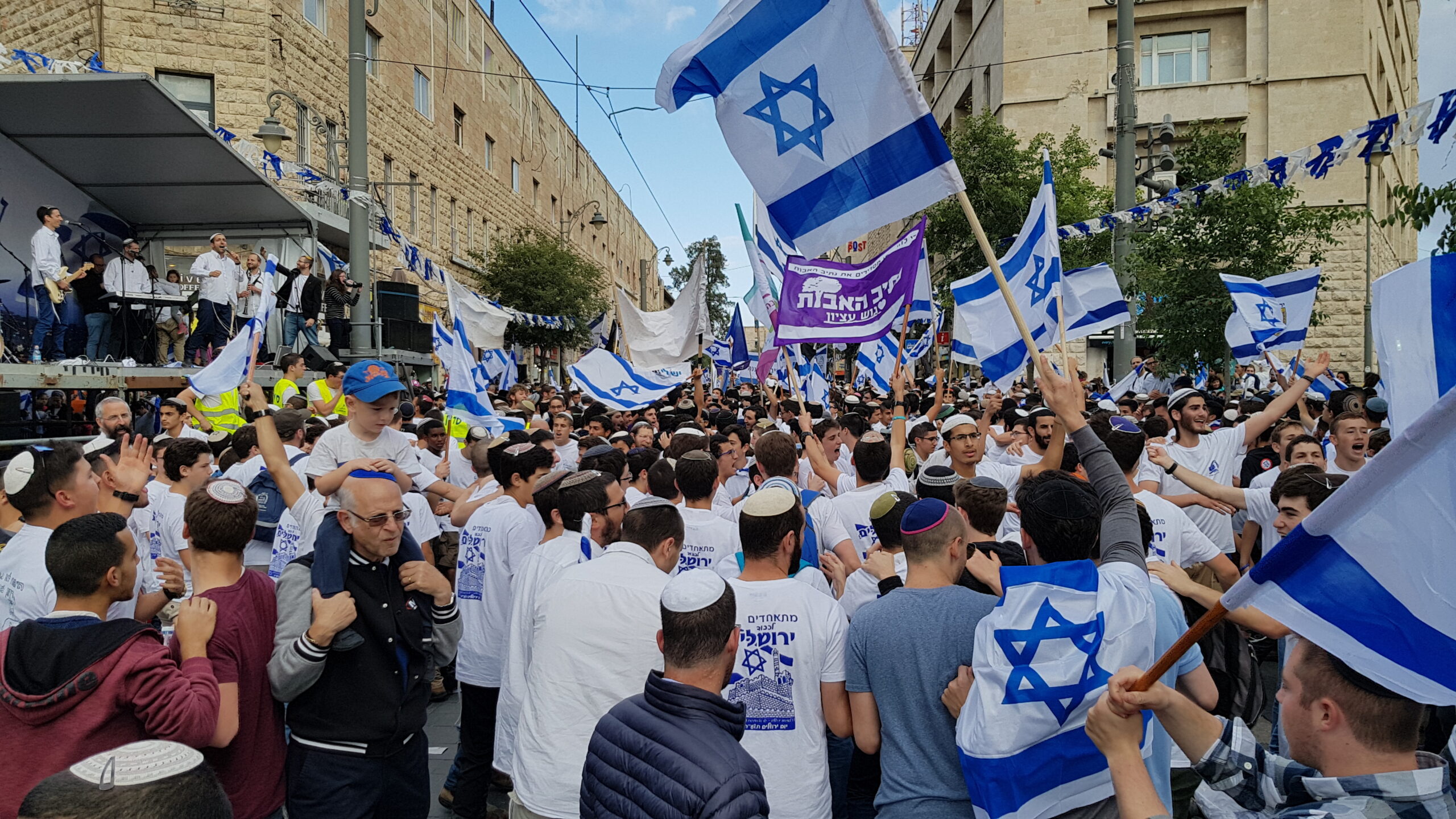Jerusalem Day
Jerusalem Day is an Israeli national holiday celebrated annually on the 28th of Iyar in the Jewish calendar, which this year falls on the 19th of May. The day marks the reunification of East and West Jerusalem that took place in the Six-Day War in 1967.

Flag dance on Jerusalem Day. Photo: Commons wikimedia
In June 1967, Jerusalem came under Jewish control for the first time since the Jewish-Roman wars and the destruction of the Second Temple in AD 70. Roman Emperor Hadrian later subjected the Jewish population to ethnic cleansing and changed the name of the Roman province from Syrian Judea to Syrian Palestine in an attempt to wipe out the Jewish homeland. For almost 2000 years, this province was never a country of its own, but only an area of land controlled by various occupying powers, the last of them being Ottomans and British for some hundreds of years.
Throughout this period Jerusalem was never a capital of any country, simply an abandoned and insignificant city on the outskirts of the occupying powers. In his Jerusalem book, published in 1845, Ernst Gustav Schultz, a German scholar and consul of the major power of Prussia in Jerusalem from 1842, describes how, in 1844, Jerusalem had 15,510 inhabitants, of whom 7,120 were Jews, 5,000 were Muslims and 3,390 were Christians.
Rejected by the Arab world
The UN partition plan of 1947 which was rejected by the Arab world proposed that Jerusalem should become an international city, and after ten years, a referendum among its residents would decide to which country the city should belong.
Defense Minister Moshe Dayan’s words at the Western Wall from June 7, 1967, are often quoted during Jerusalem Day:
“This morning, the Israel Defense Forces liberated Jerusalem. We have united Jerusalem, the divided capital of Israel. We have returned to the holiest of our holy places, never to part from it again. To our Arab neighbors we extend, also at this hour – and with added emphasis at this hour – our hand in peace. And to our Christian and Muslim fellow citizens, we solemnly promise full religious freedom and rights. We did not come to Jerusalem for the sake of other peoples’ holy places, and not to interfere with the adherents of other faiths, but in order to safeguard its entirety, and to live there together with others, in unity.”
3000th anniversary
On May 12, 1968, the government proclaimed a new holiday — Jerusalem Day — to be celebrated on the 28th of Iyar. July 30, 1980, the Knesset officially approved the Jerusalem Law, declaring the city the complete and united capital.
In 1996, Jerusalem celebrated its 3,000th anniversary since King David conquered and took it from the Jebusites and founded the “City of David”. In 2017, the 50th anniversary of Jerusalem Day was celebrated, 50 years after the city was reunited.
Jerusalem Day is officially marked throughout Israel with state ceremonies and memorial services, including a flag parade.



